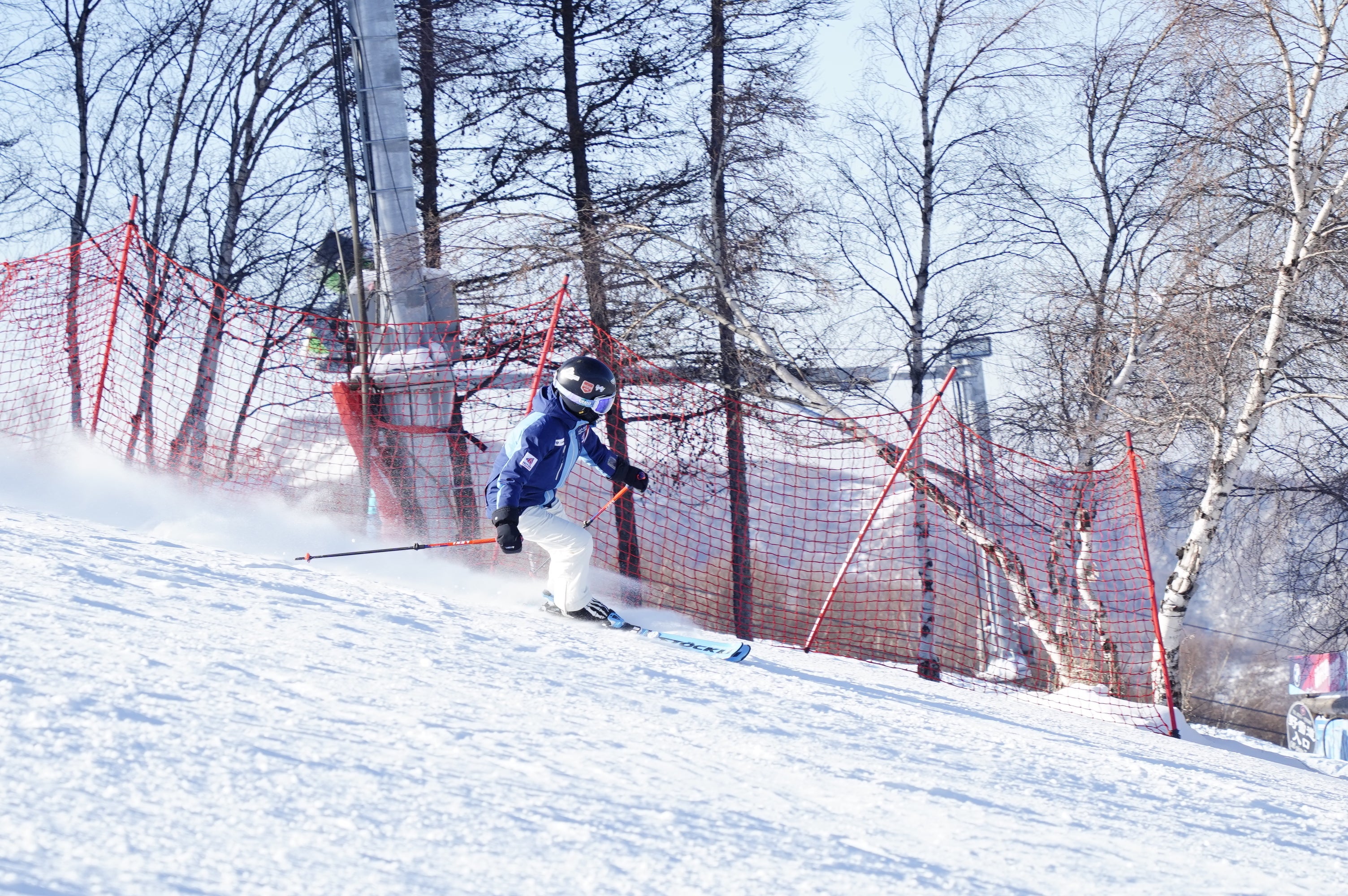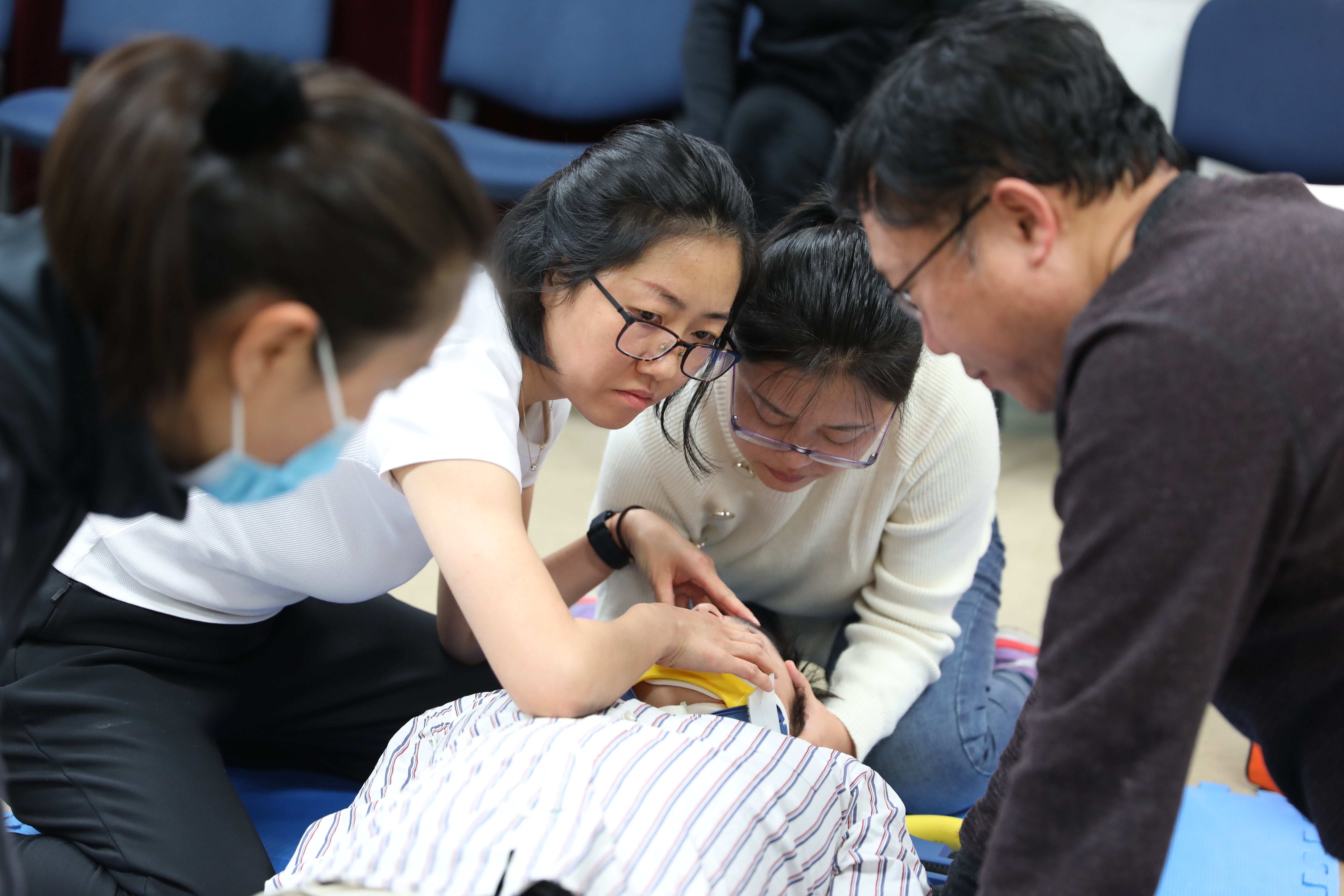Fun with snow becomes a full-time job looking after others
THE ARTICLES ON THESE PAGES ARE PRODUCED BY CHINA DAILY, WHICH TAKES SOLE RESPONSIBILITY FOR THE CONTENTS

Skiing is something Fu Yan enjoys with her friends. Occasionally they go skiing and have lunch together. However, what was once a leisurely pastime has turned into a full-time occupation.
When the Beijing Administration of Traditional Chinese Medicine was recruiting doctors in 2018 to offer medical care to athletes taking part in the 2022 Beijing Winter Olympics, the doctor from Xiyuan Hospital of the China Academy of Chinese Medical Sciences signed up without hesitation.
“I believed it would be great if I were to have the chance to use my training to do something for the Winter Games,” said Fu, 38, who works in the emergency department of the hospital.
After more than three years of painstaking effort she has become a qualified ski doctor ready for the Winter Games, and said she is confident she will do her job well.
In 2018 she stood out among many other applicants with her proficiency in medical care, skiing and English. After several rounds of screening, she became a member of the team providing medical care to alpine skiers.
Alpine skiing is a sport with a high risk of injury, so ski doctors such as Fu need to be quick to respond.

“If we are called to attend to an athlete on the slope, it means he or she will have been badly injured. We are on duty at many medical sites. If we are informed of athletes falling on the slope and needing medical care, we ski to the athlete immediately, offer treatment, and help take anyone injured from the competition area,” she said.
In preparation for the job, Fu had to improve her skiing skills. Although she could ski on the advanced slopes as a skiing enthusiast, she realised there was a wide gap between her recreational skiing and that required of a qualified ski doctor.
“I remember when I first skied under the guidance of a professional tutor. I felt as though I couldn’t ski. The tutor felt there was a problem with the way I had been skiing,” Fu said.
When the Games begin, Fu and her colleagues need to ski on the steep icy slopes with medical equipment as heavy as 15 kilograms on their backs.
“The International Ski Federation requires us to reach anyone injured in four minutes, so we need to hone our skiing techniques until we can ski easily as if we are walking and running on the slopes,” said Fu.
Every snow season Fu and her teammates gather at the National Alpine Skiing Centre on Haituo Mountain in Beijing for high-intensity training for more than 20 days. They practice skiing under the guidance of tutors in the mornings, and tackle medical rescue drills in the evenings. They can now ski to injured athletes in just one minute.
Fu found applying the medical techniques she is familiar with on the slopes very difficult. For example, cardiopulmonary resuscitation, or CPR, is a common emergency procedure doctors use to save people, but it is much more difficult to administer it on an incline than on a level, flat surface.
“We need to choose the angle to do chest compressions, and consider what movements we should make to remain stable on the steep slope without falling,” said Fu. “Moreover, doctors often take turns to do CPR, so how we change our positions is an issue we need to consider.”
China is relatively new to organising professional ski doctor teams, Fu said, so it is continuously exploring and gaining experience this time.
“Some medical officers went to Sochi, Russia, where the 2014 Winter Olympics were held, to consult local professionals and gain experience to guide our training.
“Moreover, since our team members come from different departments of the hospitals, we discuss with each other many details such as which medicine we should use and what postures we should adopt in different situations to perform medical procedures during the Games.”
Previously published on Chinadaily.com.cn
